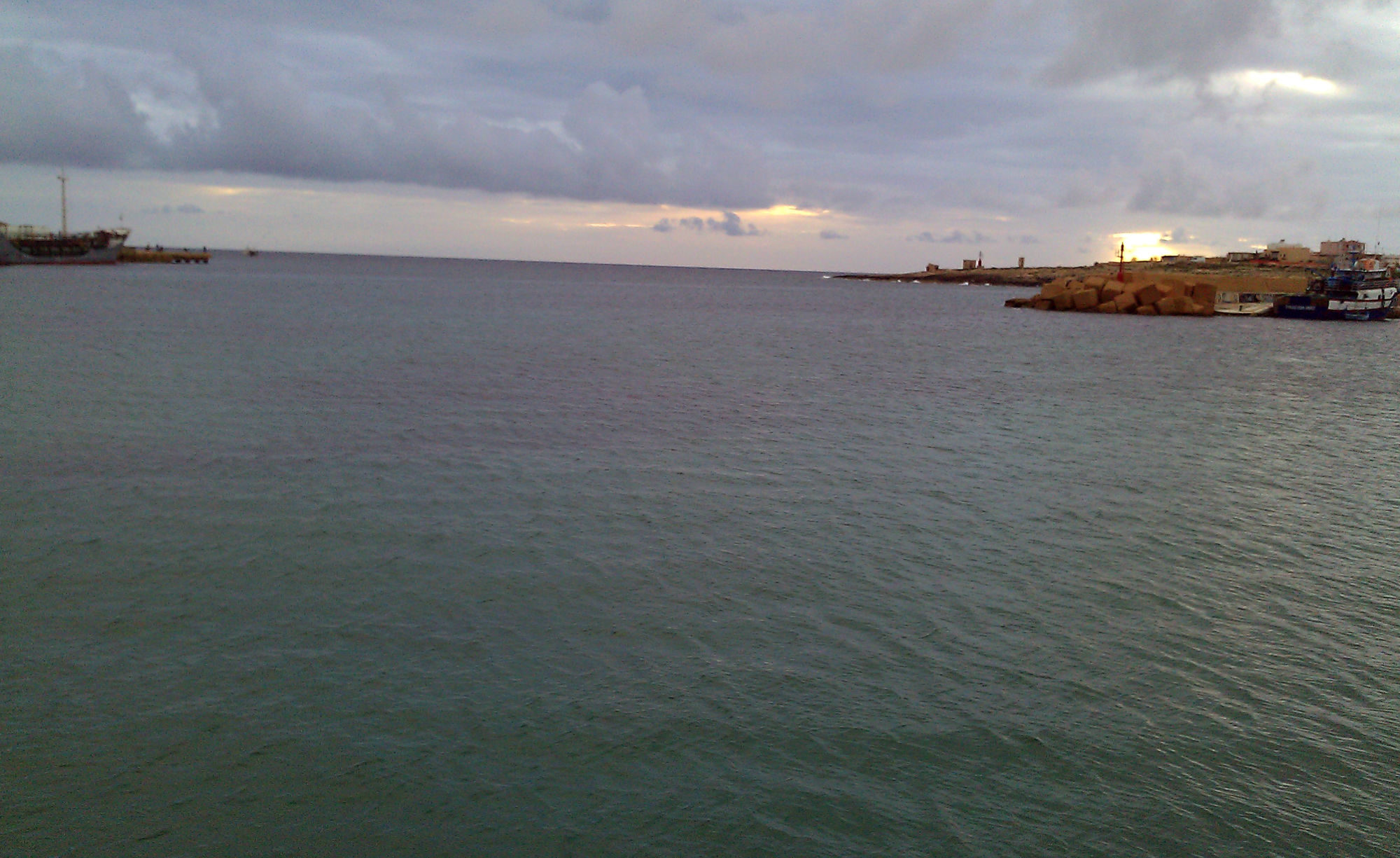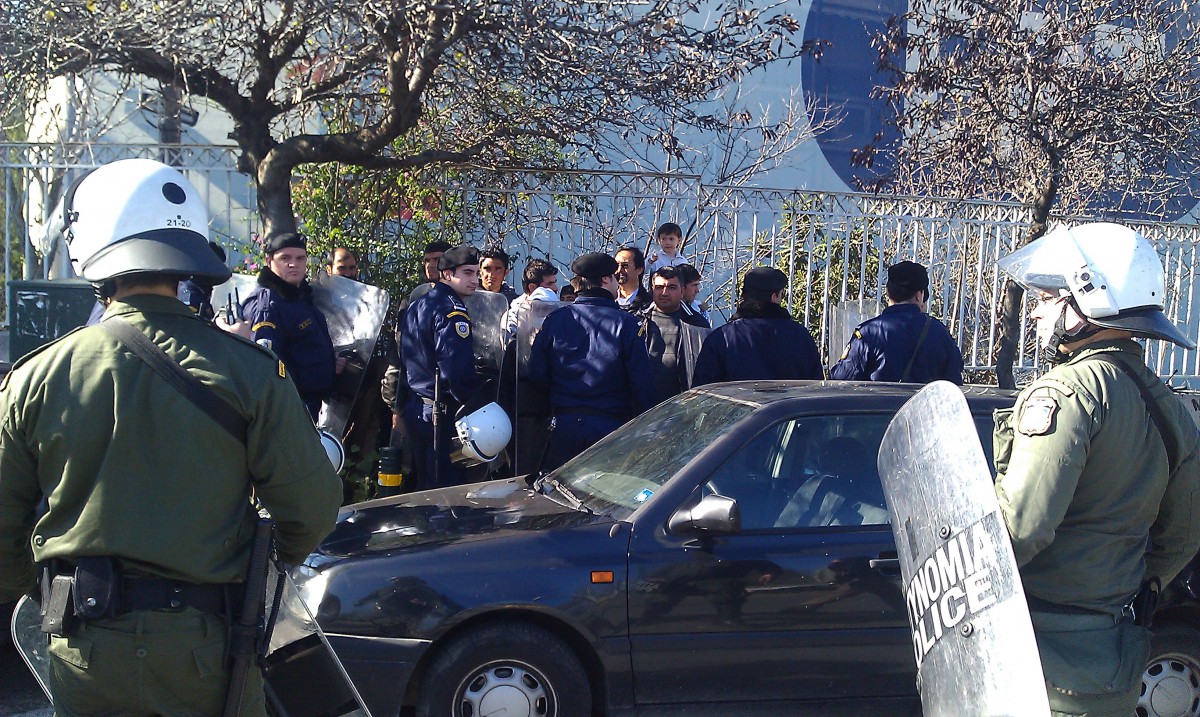Rebecca Omonira-Oyekanmi was recently shortlisted for the Orwell Prize for Journalism for her work reporting on Britain’s most vulnerable communities, including asylum seekers and refugees. Here she argues that we can learn from US asylum and immigration debates where there is a serious challenge to the idea that people can be illegal. That same challenge is urgently needed now in the UK.
More than 60 years ago European leaders gathered to sign the European Convention on Human Rights; a landmark international treaty born out of the horrors of the Second World War, and championed by the then British Prime Minister Sir Winston Churchill. The Convention declares that human rights are “the foundation of peace and justice in the world” and that they are ‘universal’ – they apply to everyone.
Decades later one group is still denied humanity and rights; here in the UK we even go so far as to label their very existence unlawful. Illegal migrants, bogus asylum seekers. The phrasing is used in the British press (broadsheets, tabloids and broadcasters alike) and by politicians and civil servants. This language matters, and it needs to be more seriously challenged.
Back in 2011 I watched a dozen or so armed police in riot gear surround a small peaceful group of Afghan men, women and children outside the Greek ministry for citizen protection. The refugees were protesting delays to their asylum applications, some had been waiting years. The words of one, a man named Reza, stayed with me: “We want to show that we are human and we are here in Greece.”
The survivors of the boats that sank last week are here in Europe, they are human, but still in Britain we struggle to accept it. We can express sadness over the ‘children’ dead, the ‘genuine refugees’ among the drowned, but not the survivors. They are already potential ‘illegals’. Every expression of regret at the tragic deaths is swiftly followed by an aside, almost a caveat, about the need for strong immigration controls and secure borders. Our collective thinking about the tragic events of the Mediterranean is intertwined with tabloid tales of bogus asylum claims, migrants ‘stealing’ jobs and (mis)using the National Health Service.
In 2013, Theresa May, a candidate for the next leader of the Conservative party, said: “It is unfair that illegal immigrants, people that have got no right to be here, can live apparently easily getting access to bank accounts, driving and so forth.” May said this around the time she was promoting what would become the Immigration Act 2014. That Act makes landlords, doctors, bank cashiers and other ordinary people complicit in policing the supposed illegality of a murkily defined group of people, undeserving of simple freedoms such as driving, receiving medical care or renting a home.
In the US there is a more advanced public debate about the use of language and how that affects the perceived humanity of migrants and refugees. Activists and rights campaigners, occupy a national space and have used the discussion to lobby the President. They call themselves DREAMers, after the Development, Relief, and Education for Alien Minors bill. If passed the DREAM act would give younger migrants rights to education and protect them from deportation. Pulitzer Prize winning journalist Jose Antonio Vargas is one well-known DREAMer.
When Vargas was 16-years-old he discovered he was illegal. He had tried to apply for a drivers permit and the clerk had looked at his green card and told him it was fake. She let him go but warned him never to come back. Vargas’s parents, who live in the Philippines, sent him to America for a better life when he was 12. Time passed and he settled, a bright student unaware of his official immigration status.
In a country that believes in due process of the law, calling an immigrant illegal is akin to calling a defendant awaiting trial a criminal.
Vargas spent the next 15 years dodging questions and established a career in journalism. Only in 2011, at the age of 29, did he turn to report on himself, telling his own story in an elegant essay for the New York Times. Ever since, Vargas has campaigned for the rights of undocumented migrants in the US. Key to his thinking is language and how it informs the rights accorded to migrants. In an article for Time magazine in 2012, he writes:
“In a country that believes in due process of the law, calling an immigrant illegal is akin to calling a defendant awaiting trial a criminal. The term illegal is also imprecise. For many undocumented people — there are 11 million in the U.S. and most have immediate family members who are American citizens, either by birth or naturalization — their immigration status is fluid and, depending on individual circumstances, can be adjusted.”
In the same article Vargas questions the use of ‘illegal’ by the press. His analysis equally applies to the UK:
“When journalists, who are supposed to seek neutrality and fairness, use the term, they are politicizing an already political issue. And the term dehumanizes and marginalizes the people it seeks to describe. Think of it this way: In what other contexts do we call someone illegal? If someone is driving a car at 14, we say “underage driver,” not “illegal driver.” If someone is driving under the influence, we call them a “drunk driver,” not an “illegal driver.” Put another way: How would you feel if you — or your family members or friends — were referred to as illegal?”
The term dehumanizes and marginalizes the people it seeks to describe.
Earlier this year, Vargas’ campaign group, Define American, challenged members of the American media to stop using the word ‘illegal’ to refer to people. “Actions are illegal, people are not,” said Vargas in a statement. The campaign is called #wordsmatter.
What Vargas and the DREAMers are doing in America resonates here. Words matter. Most British people were sickened when the Sun newspaper published an article that compared the thousands drowning and crossing the Mediterranean to cockroaches. But how could we feign surprise when for so long we blithely accepted that people could be illegal. It is a more subtle denial of humanity, one far from the promises made after the Second World War. As European leaders gather again promising ships and a war on traffickers, there is one simple thing they can do: remember that words matter. Stop calling people illegal. They are here and they are human.

